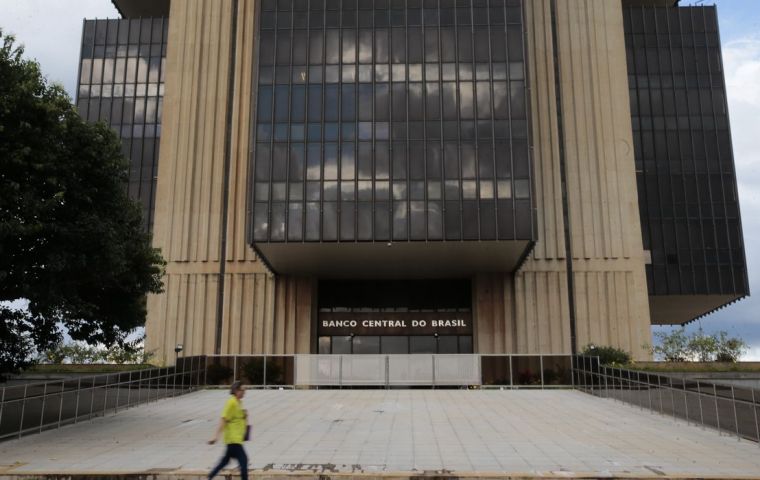MercoPress. South Atlantic News Agency
Brazil's Guedes pushing for higher interest rates to contain inflation
 Next week the Brazilian central bank Copom will be meeting and a full percentage point increase is expected by financial markets
Next week the Brazilian central bank Copom will be meeting and a full percentage point increase is expected by financial markets Brazilian orthodox Economy minister Paulo Guedes has not resigned and has no intention of resigning despite the fact he will have to live with the exceptional expenditure of some 45bn Reais, as part of the Auxilio Brazil support program for vulnerable families and president Jair Bolsonaro's 2022 reelection plan.
Auxilio Brazil outlays mean the budget expenditure cap will be ignored or be submitted to some accounting cosmetics and thus the uncertainty in the Brazilian market with what may happen with inflation and the drop of the local currency against the US dollar.
However, Guedes is now putting pressure on the Brazilian central bank to control inflation by increasing the basic Selic rate which now stands at 6,25% and taking it to possibly 10% by the end of the year.
The Brazil Auxilio program Bolsonaro is sponsoring means distributing some 400 Reais per month to some 17 million vulnerable families, a similar instrument employed by the Workers Party ex-president Lula da Silva to finish with hunger, but which also had a clear electoral purpose.
Next week, October 26/27 the Brazilian central bank Monetary Committee will be meeting to define the next increase of the Selic rate, and the bank chairman Roberto Campos Neto, according to minutes and reports is expected to propose to his colleagues a full one percentage point increase to 7,25%.
Nevertheless, Guedes allegedly is not convinced and with the support of the financial market and several leading banks are pushing for a 1,5 percentage points increase, and similar moves in the remaining two Copom meetings of the year, which would mean the Selic rate could reach 10,7% by the end of 2021.
The reelection team of Bolsonaro is also interested in a more energetic attitude from the Central Bank to ensure control over inflation in 2022, and in midyear begin lowering the interest rate ahead of the October presidential election.
Two of the banks supporting the Guedes proposal are Credit Suisse which estimates the Selic rate will stand at 10,50% by the end of the year, and JP Morgan, a bit more prudent expects 9,75%, while the weekly Focus survey from the Central bank estimates the rate at 8,75% by the end of the year.




Top Comments
Disclaimer & comment rulesCommenting for this story is now closed.
If you have a Facebook account, become a fan and comment on our Facebook Page!